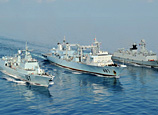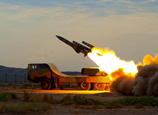
Samsung stopped related behavior at the end of 2005, and has established a rigid compliance management system for law-abiding operations, the company said.
"We do not expect this decision to impact our relationship with customers or panel sales," said an LG statement.
Edward Lehman, foreign legal consultant and managing director of Lehman, Lee & Xu Law Firm, said the next step for the mainland is not only to bring these cases to regulatory authorities, but also to civil courts, which was still rare on the mainland.
"It's a very good decision in the right direction, but the penalty is not enough for stopping people," he said.
Taiwan's AU Optronics was ordered to pay $500 million by a US court in September, one of the largest anti-trust settlements. A US court said in December 2011 that Samsung, Sharp and six other makers of panels for TVs and computers agreed to pay $388 million to settle price fixing claims by direct purchasers, according to Bloomberg.
Lehman also suggested mainland companies act more to protect their interests.
It's normal in the West to solve issues through litigation among partners, but mainland companies don't want to get involved because they are afraid that would hurt cooperation.
Suppliers have already been hit by US and European regulators with penalties totaling more than $3 billion for colluding to push up slumping prices of display screens in 2001-06, which raised costs for electronics manufacturers.
A total of 49 price fixing cases have been investigated by the NDRC since the implementation of the anti-monopoly law.















 1.8 mln to sit 2013 postgraduate admission exams
1.8 mln to sit 2013 postgraduate admission exams


![]()
